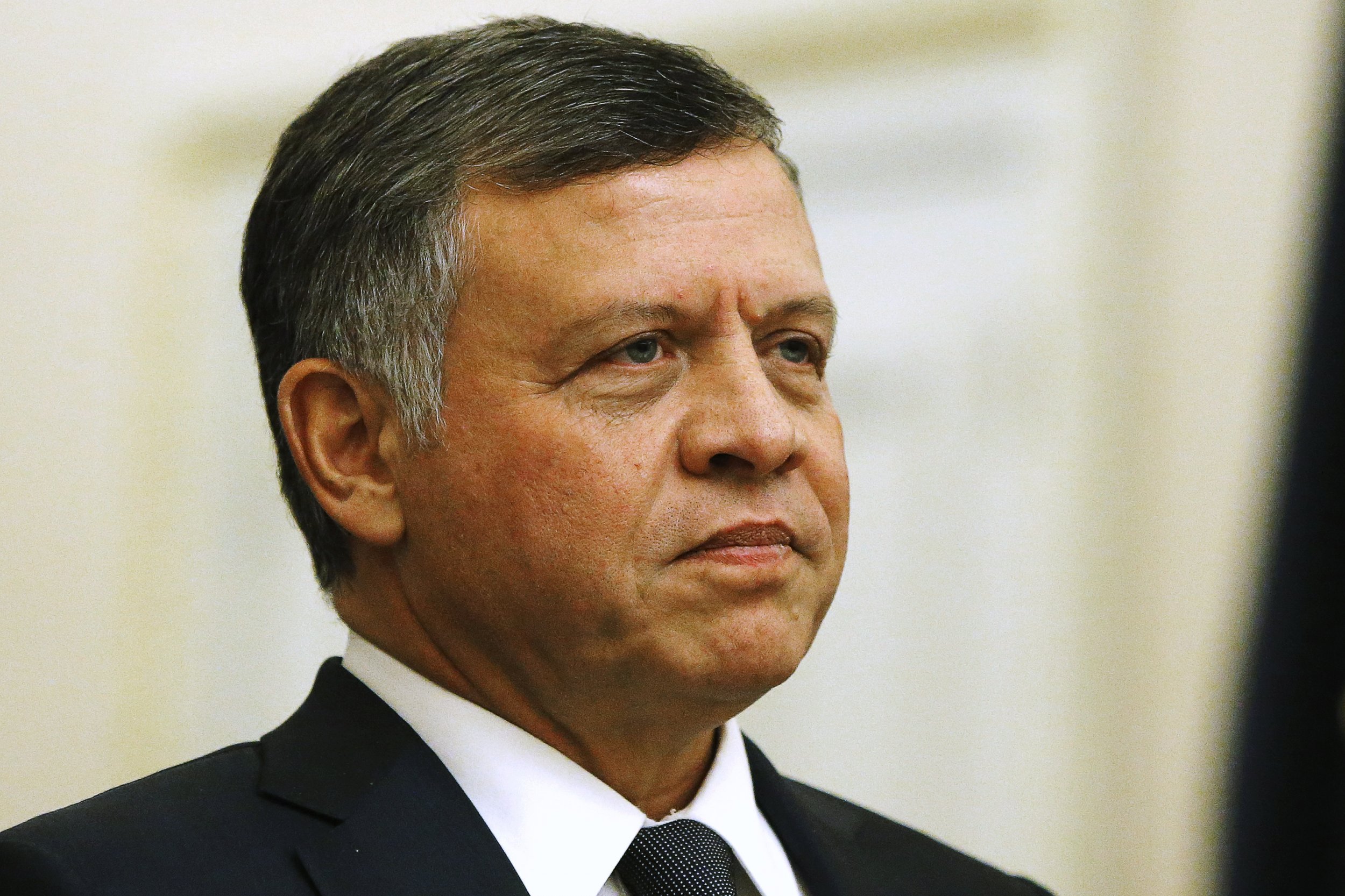
Jordan's King Abdullah II has warned that an Israeli-Palestinian peace deal is crucial to ensure security in the Middle East. Abdullah said that the conflict serves as a "rallying cry" for extremists from groups such as ISIS, in a speech delivered to the European parliament on Tuesday.
Jordan has increased its participation in the US-led coalition against ISIS following the release of the brutal video last month which showed them burning captured Jordanian pilot Moaz al-Kasasbeh alive in a cage.
The Jordanian leader said that the international community's failure to "defend Palestinian rights" and secure a peace deal between Israelis and Palestinians lay at the heart of radical Islamist extremism in the Middle East as it allowed jihadis to exploit the divisive issues to recruit foreign fighters to its ranks.
"This failure sends a dangerous message," he told the audience of bureaucrats in Strasbourg. "And it has given the extremists a powerful rallying cry.
"They exploit the injustices and the lingering conflict, to build legitimacy and recruit foreign fighters across Europe and the world," he added. "How can we fight the ideological battle, if we do not chart the way forward towards Palestinian-Israeli peace?"
Since the beginning of the Syrian civil war in March 2011 - in addition to ISIS's sweep across Syria and Iraq last summer, in which the group created a self-proclaimed caliphate - up to 20,730 people have travelled to the region to fight for extremist groups, such as ISIS and al-Qaeda affiliate Jubhat al-Nusra, according to figures released by the International Center for the Study of Radicalisation and Political Violence (ICSR).
Despite U.S. and western nations stepping up their battle against ISIS, Abdullah said the onus was on Muslim nations to deal with the problem.
"This is a fight that has to be carried out by Muslim nations first and foremost. A fight within Islam," he said.
U.S.-brokered negotiations between Israel and the Palestinians collapsed last April after Israeli negotiators decided against releasing a fourth batch of 26 Palestinian prisoners and the Palestinian president Mahmoud Abbas signed a unity agreement with Islamist faction Hamas, who control the Gaza Strip.
The failure of these talks and the signing of the unity agreement led to deteriorating relations, with an Israeli crackdown on Hamas' West Bank presence in the aftermath of the kidnap and the killing of three Israeli teenagers by two Hamas members as they hitchhiked near a West Bank settlement.
This series of events resulted in the Gaza conflict last summer, with the IDF conducting its 'Operation Protective Edge' in the blockaded territory in what it claimed was a response to indiscriminate Palestinian rocket fire. In the conflict, over 2,100 Palestinians - mostly civilians - and 68 Israelis - all but five soldiers - were killed. Negotiations between Israeli and Palestinian parties have not been restarted since the onset of the conflict.
Other sections of Abdullah's address focused on Islamophobia in Europe and called on European nations to tackle Islamic extremism, what he likened to Nazism as "an expansionist ideology based on hatred", by promoting "mutual respect" and an "inclusive society".
"Insulting other peoples and their faiths and their convictions is no way forward," he said in relation to the Paris attacks on the offices of Charlie Hebdo earlier this year. "Europe is an important partner in this effort, especially in helping to stop the global rise in Islamophobia."
Uncommon Knowledge
Newsweek is committed to challenging conventional wisdom and finding connections in the search for common ground.
Newsweek is committed to challenging conventional wisdom and finding connections in the search for common ground.
About the writer
Jack is International Security and Terrorism Correspondent for Newsweek.
Email: j.moore@newsweek.com
Encrypted email: jfxm@protonmail.com
Available on Whatsapp, Signal, Wickr, Telegram, Viber.
Twitter: @JFXM
Instagram: Read more
To read how Newsweek uses AI as a newsroom tool, Click here.








